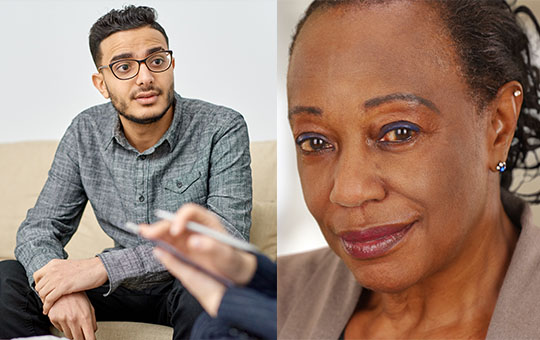Follow the conference on X #medicallyunexplainedsymptoms
“An estimated 15–30% of all primary care consultations are for MUS. Those affected by MUS use significantly more health service resources, but do so without resolving either their symptoms or the associated psychological factors.”
The Health Foundation, 2024
“The lack of a clear guideline or pathway means that patients with MUS in the UK may be cared for in an ad-hoc way that is not necessarily evidence based. This has potential to add stressors to primary care health services, which the Royal College of General Practitioners (2023) describes as overwhelmed.”
Healthcare experiences of people living with medically unexplained symptoms: a systematic review, British Journal of Nursing, March 2024
“Being heard was one of the most frequently cited desires of an encounter with primary health clinicians. Some individuals highlighted the impact of attending an appointment with a psychologist as this was a person who listened to and understood in contrast to the hesitation of others over referral to psychological services. This highlights the positive influence effective communication can have on both the mental and physical wellbeing of individuals.”
Healthcare experiences of people living with medically unexplained symptoms: a systematic review, British Journal of Nursing, March 2024
Medically Unexplained Symptoms, which include a range of physical symptoms without a clear medical cause, represent a significant challenge in healthcare. A recent study from South London and Maudsley NHSFT revealed that they account for up to one in five presentations in primary care which often lead to repeated medical consultations, extensive diagnostic tests and substantial healthcare costs.
This conference is dedicated to exploring the complexities and challenges associated with diagnosing and treating Medically Unexplained Symptoms within the NHS. We will be bringing together leading healthcare professionals, researchers and academics to share insights, case studies and strategies for improving patient outcomes and care pathways.
This conference will enable you to:
Explore contemporary practice in MUS, PPS and the impact of trauma, inequality and psycho-social deprivation on life course and health outcomes.
Reflect on how we can improve the primary care response
Explore and reflect on differing views among patients, GPs and other professionals
Learn from a CBT-based service for treating MUS
Improve your understanding of the breadth and diversity of PPS and MUS
Explore the gaps in our knowledge and future research considerations
Learn about the impact of adverse experience in childhood (trauma +) on patient experience, body-mind health and outcomes in adult life.
Reflect on current limitations for treating MUS through NHS Talking Therapies
Explore Innovations in Primary and Emergency care – improving the primary care response to MUS
Understand and evaluate the training needs for GPs treating MUS
Self assess and reflect on your own practice
Supports CPD professional development and acts as revalidation evidence. This course provides 5 Hrs training for CPD subject to peer group approval for revalidation purposes




